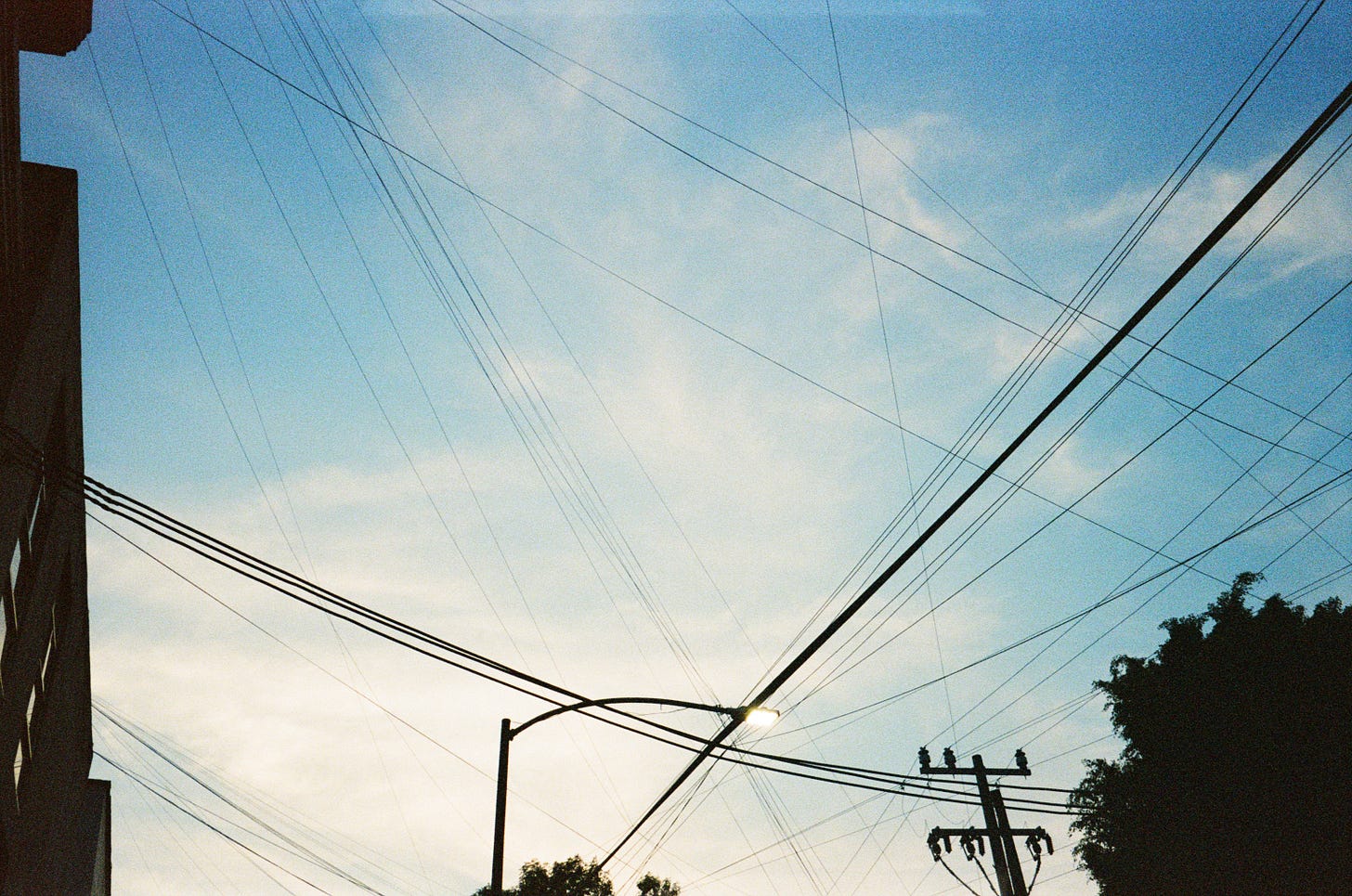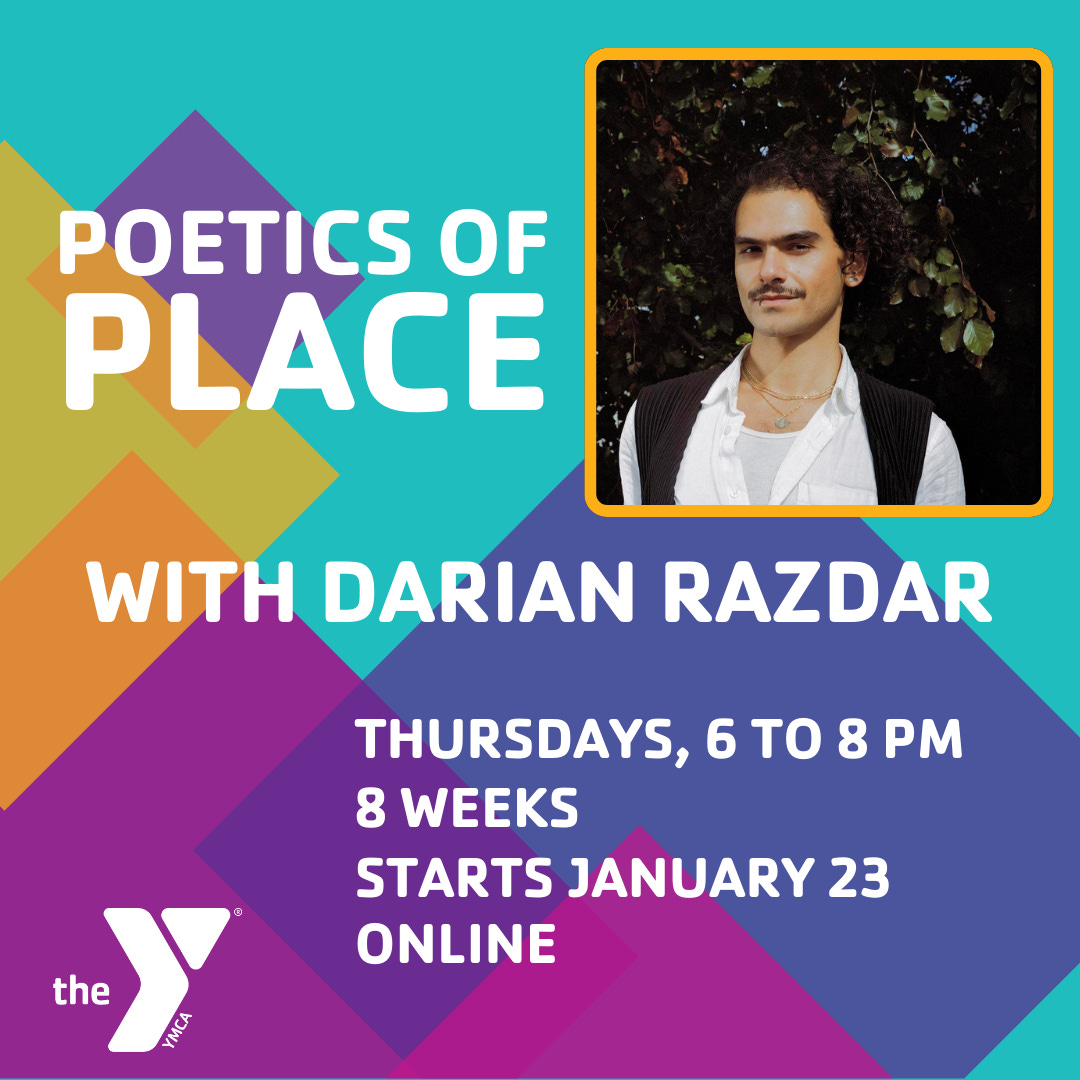Scroll down for info on the 8-week Poetics of Place workshop I am offering this winter.
The world is spinning in a very challenging way. It’s impossible to ignore the centripital force of this context, yet our individual roles within it remains hardly discernable amidst the movement.
What am I doing with my time, my space, my voice? These days it feels like digging in, guarding, protecting what’s sacred to me from the inevitable damage of a broken world. This world in which I live — and which many of us share, at least in part — is broke, is breaking, will continue to break. This is a reality I can only grapple with by learning.
Learning, whether through the text of a book or the text of the world, is sacred and must be protected. Yet, we protect learning not by folding in but by turning out. That is, learning must be shared, we must share what we know and we must implicate others in our shared learning experiences.
As always, I learn by drifting. Drifting, in the Situationist sense of the dérive (to return to what really matters (oneself, every other, this relentless situation we share)), means to me going where one wants, when one wants, as one wants. Desire is the thing that moves. And, I am moved.
I’ve been reading Édouard Glissant’s Poetics of Relation in conjunction with Paulo Friere’s Letters to Those Who Dare to Teach. Glissant and Friere intersect, diverge, and contradict each other in their respective theories of what it means to be and do in a spinning breaking world. Glissant, more reverant of the unknown and unknowable, writes poignantly about the errant — one who “strives to know the totality of the world yet already knows he will never accomplish this.”
I strive to be the errant in my drifting, treading lightly and following the impossibly knowable. Glissant contrasts errant’s “circular nomadism” with the “arrowlike nomadism” of the traveler, discoverer, conqueror, who feigns to see the world as knowable, and thus divisible, and thus one’s to take or own. But no one owns the world, though we all have a hand in making this world or that one.
As I return to Mexico City admist heightening geopolitical tensions woven between imperialism, gentrification, and migration, I am reminded again that the worlds we thought we knew yesterday are breaking and that tomorrow’s are already emerging out of the shell of the old. I am called to Glissant’s thoughts on errantry and the transformation of national identities, which seem so stuck today more than ever:
“We will agree that this thinking of errantry, this errant thought, silently emerges from the destructuring of compact national entities that yesterday were still triumphant and, at the same time, from difficult, uncertain births of new forms of identity that call to us.”
Identity, trickier to say today than in the 1980s when Glissant wrote this text, “which is, after all, nothing more than the search for a freedom within particular surroundings.”
To be errant is to always be learning and to never quite know. To learn is to drift as much as to study, which one learns quite quickly are not so different. To study, I drift from one idea to the next, connecting fragments of an unimaginable world as my study unfolds. Study brings me in, and turns me out.
As Friere notes in the first of his Letters, “The act of studying always implies that of reading, although it doesn’t end there. To read the world, to read the word and so to read the readings of the world that came before.” Studying, I trace the edge between word and world, I oscillate between inside and outside, I am me and much as I am you, or him, or her, or us, or them.
Study has been my refuge amidst the breakingess. As the best of refuges, study has surely opened me to new worlds — easily but not without difficulty. The most important things come easy and feel difficult. In a world so breaking at its seams, the pinch of the darning needle seems to hurt each time it pierces this fabric we share in its process of mending. I feared the needle once so much I ran from it, but now I look at it with a steady eye, remembering that what exists between me and the impossible world I want is a struggle of possibility.
“There always exists a relation between fear and difficulty, between fear and that which is difficult. But in this relation evidently there is also found the figure of the subject who is scared of that which is difficult or by difficulty itself. The subject who is scared of the storm, who is scared of solitude, or who cannot surpass the difficulties to finally understand the text cannot grasp the text’s intelligence.” (43, Friere, Cartas)
Someowhere between, on one side, Friere’s unwavering committment to understand both the text of the page and the text of the world, and on the other, Glissant’s conceit toward the threatend beauty of the unknowable, I drift along.
It’s the constant motion of life that brought me here, that guides me without my choice to move or stay. Yet, it is my choice to choose what I see and what I ignore. I am wrapped up in all the choices and sights and truths that came before, during, and after me. I write this knowing the failure of my grammar’s chronology. So I continue to drift, passing by in my errant study.
For those who seek to intersect their study with mine, I am offering an extended Poetics of Place workshop online throught the Downtown Writers’ Center at the YMCA of Central New York. For eight weeks starting 23 January 2025, we will gather to learn a range of practices — from Pauline Oliveros’s deep listening to Jane Rendell’s site writing and Glissant’s poetics of relation and more — that will get us creatively engaging with the words and worlds in which we live.
As a synchronous online experimental writing workshop, this is a wonderful chance to gather from our different locales to support our collective learning in this spinning world.
Registration is open until 10 January online here.




